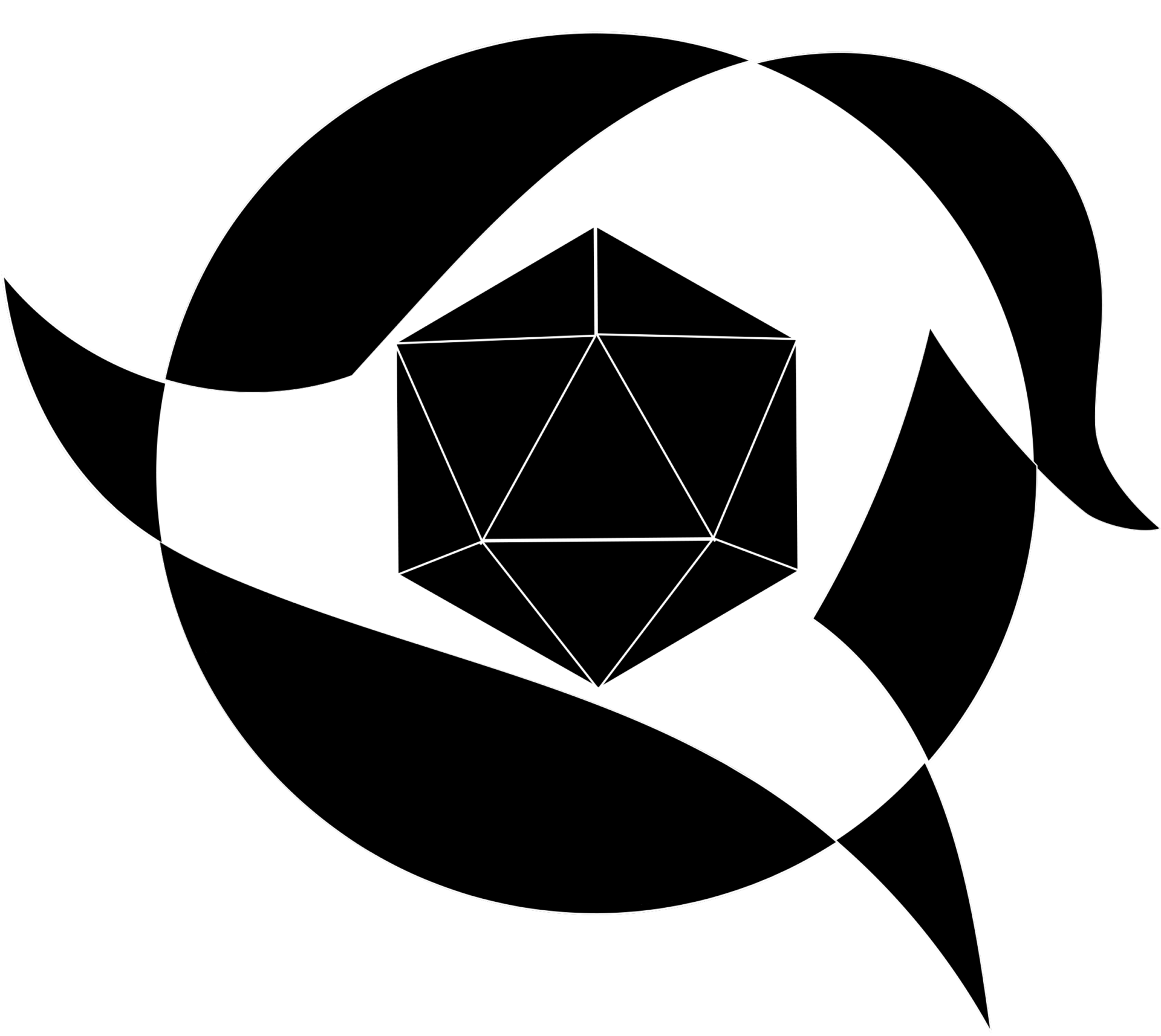Is our world currently too scary? Do you find yourself with too much time to fill with anxiety over it? Goes without saying that you should be spending the scary times mostly at home if you are able (especially because key infrastructure and healthcare workers are not), but that doesn’t mean your mind has to be in lockdown along with your body. This is why I made a little list of books you can escape to in the meantime instead of overworking yourself or eroding your sanity with concerns you have no power over.
#1 Good Omens: The Nice and Accurate Prophecies of Agnes Nutter, Witch
(Neil Gaiman & Terry Pratchett)
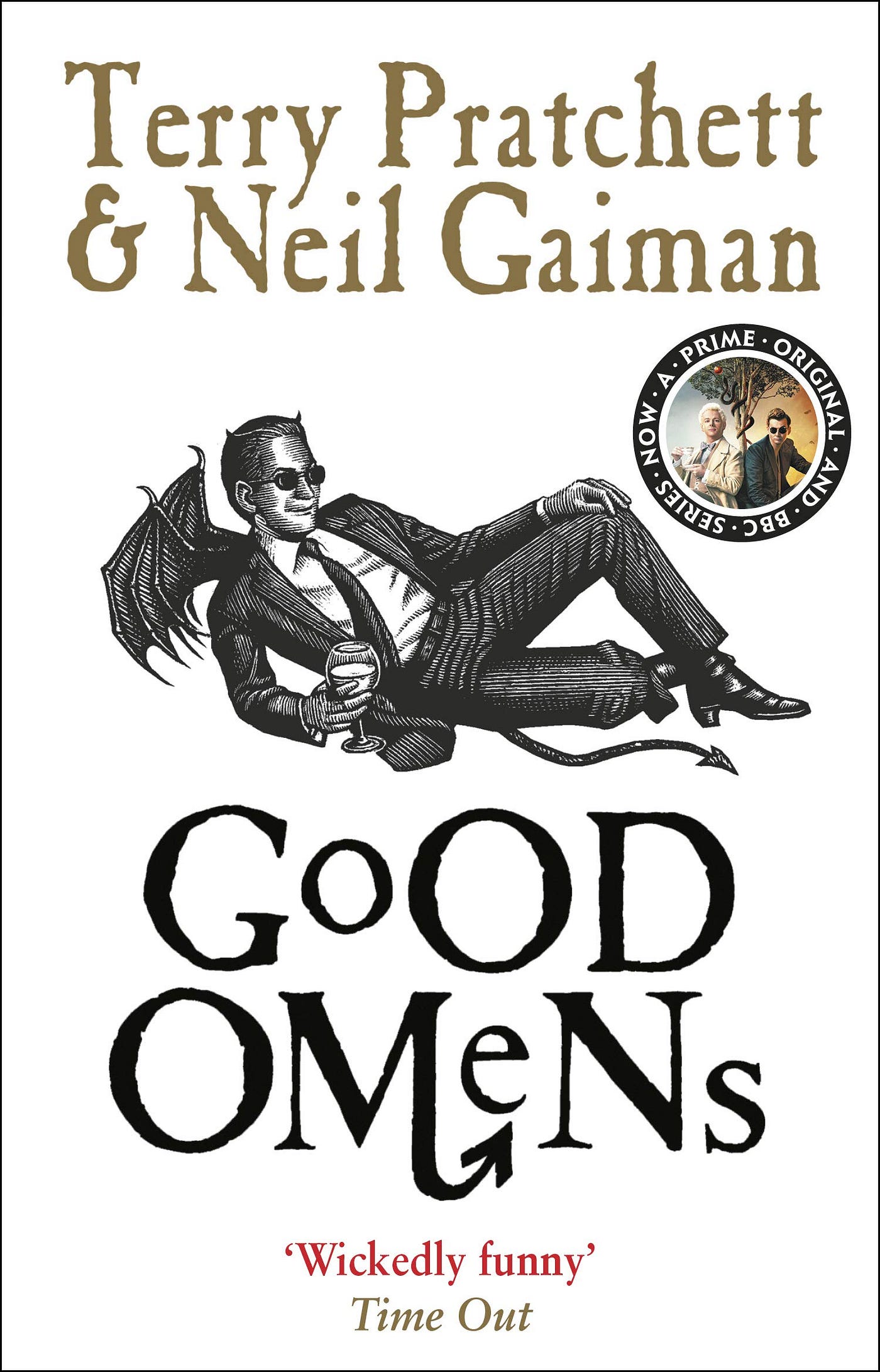
Time to step away from what feels like the end times into, well, the end times—but funny! In Good Omens you get to hang out with a delightfully subversive duo comprised of an angel (Aziraphale) and a demon (Crowley) as they bumble their way to postponing the apocalypse. “And someone seems to have misplaced the Antichrist…”
The duo packs a truck(or, rather, lorry)load of charm. Having spent the last couple millennia among humans, they picked up a thing or two from us, including our habit of dancing around protocol and interpreting things however it best suits us. They also have grown quite fond of some human creations.
“‘Heaven has no taste’
‘Now-’
‘And not one single sushi restaurant.’
A look of pain crossed the angel’s suddenly very serious face.”
The book was recently adapted into a hit miniseries available on Amazon Prime Video so, as a bonus, you get to compare the two of them and spend even more time submerged in apocalyptic, witty banter.
#2 The Kingkiller Chroniclle
(Patrick Rothfuss)
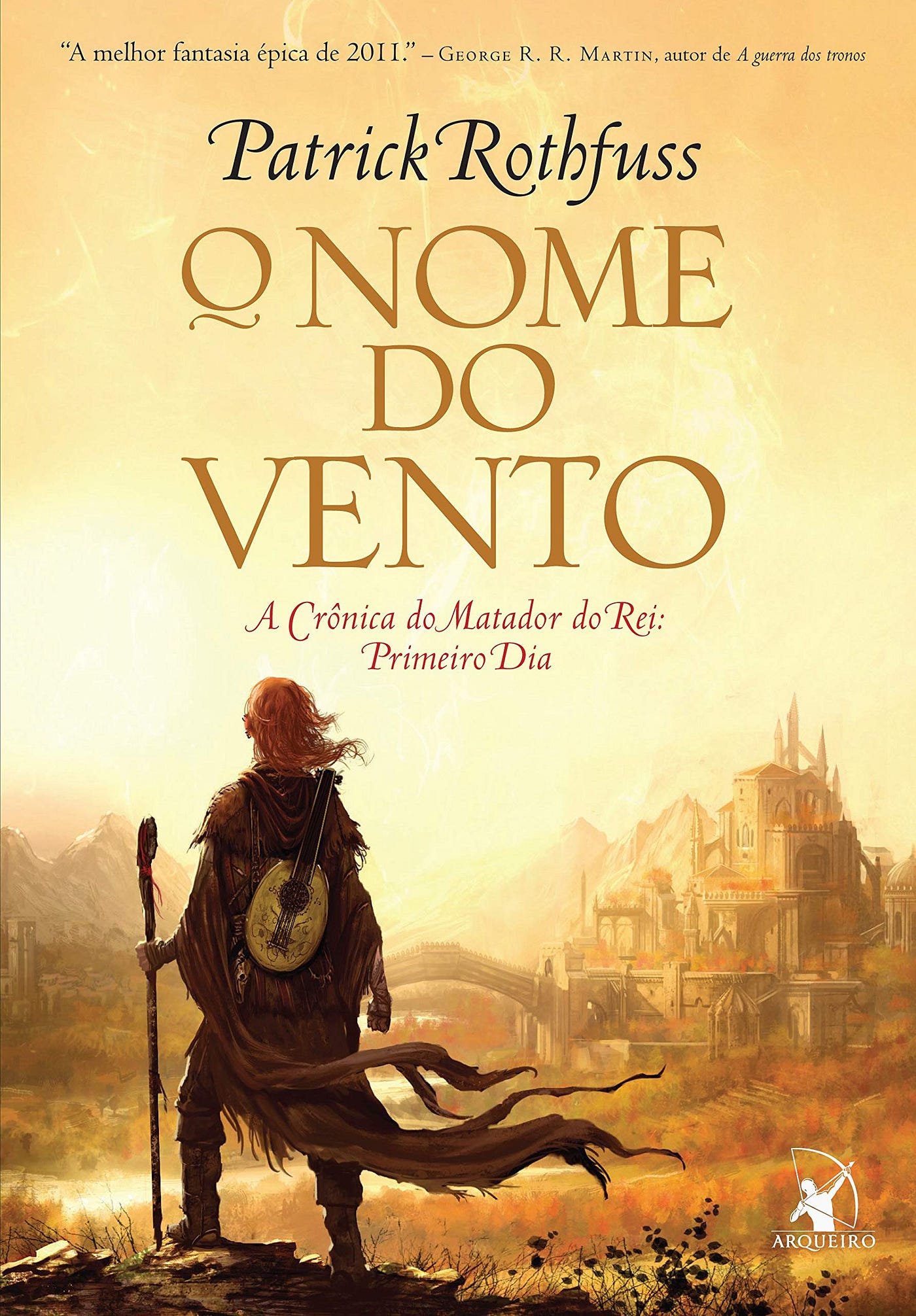
These are books that span the entire emotional spectrum, from tear-jerker to livid with rage to laugh-out-loud funny. They excel at creating heartwarming moments with characters you can’t not care about. These are books that will punch you in the guts but then also hug you and sing you to sleep. The world is rich and diverse, with some interesting cultural dynamics and the very welcome intermingling of hard, systematic magic and its poetic counterpart (in this case, the art of Naming).
“Words are pale shadows of forgotten names. As names have power, words have power. Words can light fires in the minds of men. Words can wring tears from the hardest hearts”
wrote Patrick Rothfuss. I don’t know about you, but I sure as hell could use some fire in my heart right now. It feels like a cold attic littered with broken toys.
With beautiful prose and a deep well of empathy that powers the aforementioned character moments, Rothfuss is a literary force to be reckoned with. No wonder the man takes so long to finish things, he has a love of language that compels him to perfect the most minute details. The result is stuff like this:
“Songs choose their hour and their own season.
When your tune’s tin, there is a reason.
The tone of a tune is your heart’s mettle,
and there’s no clear water from a muddy well.
All you can do is let the silt settle,
or you’ll sound sour as a broken bell.”
Only in the book this is rendered as prose.
While not as flashy or busy as most have grown accustomed to expecting from fantasy, these books have a world and cast of characters that will make you feel less alone and light up your sense of wonder. And they do pick up some high adventure momentum with time.
They also happen to be enormous, so you can lose yourself in them for days (then join me and countless others in the painful wait for the third installment).
#3 The Saxon Stories
(Bernard Cornwell)

Some viking warriors wore the skins of mighty beasts hoping to gain some of their fierceness. In this 12-book long series, you get to wear the skin of a badass warrior and feel fucking empowered by it, all while experiencing some amazing worldbuilding of a bygone England by the master of historical adventure.
Cornwell excels at expressing the cultural differences between (his reconstructed version of) then and now through Uhtred’s—the protagonist—internal monologue and how characters interact, quickly making foreign concepts and modes of being intuitive and transporting the reader to the days of yore. The prose is evocative yet economic, the characters are sympathetic, and the battles kick ass.
Only in a Cornwell book have I ever read a character think about how the spear stuck in their shield is making it too tiring to lift the damn thing and if the fighting doesn’t end quickly they’ll die due to not lifting said shield fast enough.
Also, Uhtred’s take on things is often very amusing.
“I have often suspected that Loki, the trickster god, invented Christianity because it has his wicked stench all over it. I can imagine the gods sitting in Asgard one night, all of them bored and probably drunk, and Loki amuses them with a typical piece of his nonsense, “Let’s invent a carpenter,” he suggests, “and tell the fools that he was the son of the only god, that he died and came back to life, that he cured blindness with lumps of clay, and that he walked on water!” Who would believe that nonsense? But the trouble with Loki is that he always takes his jests too far.”
I would be remiss not to say that I consider Cornwell’s Warlord Chronicles Trilogy, of the time when Anglo-Saxons were the invaders instead of the invaded, better literature than the Saxon Stories, but for the purposes of escapism, it doesn’t feel quite as adequate. Maybe it says something about me that I enjoy being in Uhtred “fuck you, I do what I want” Priestkiller Uhtredson’s headspace better than the more palatable Derfel from Warlord Chronicles, but there you have it.
#4 Uprooted
(Naomi Novik)
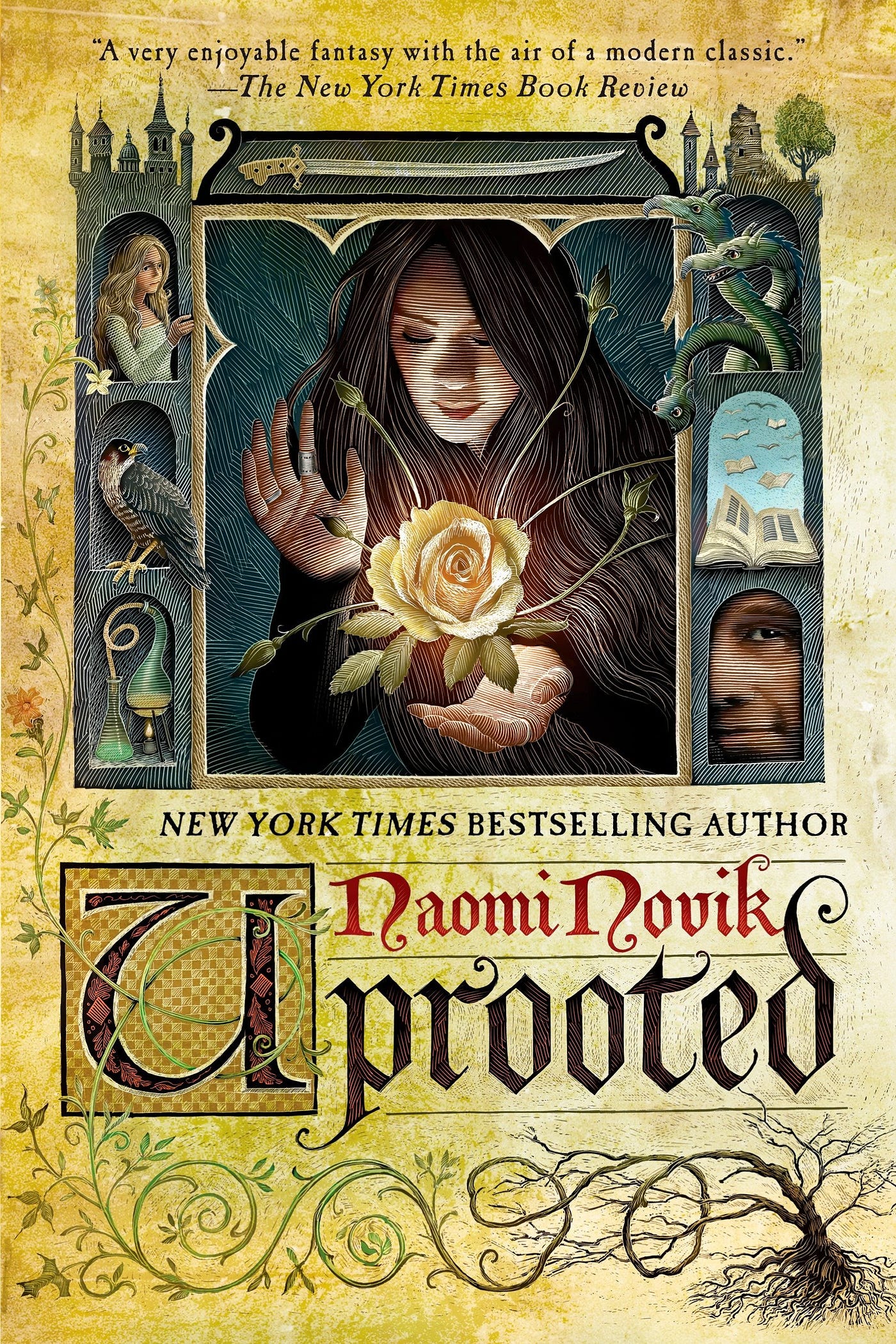
“Our Dragon doesn’t eat the girls he takes, no matter what stories they tell outside our valley. We hear them sometimes, from travelers passing through. They talk as though we were doing human sacrifice, and he were a real dragon. Of course that’s not true: he may be a wizard and immortal, but he’s still a man, and our fathers would band together and kill him if he wanted to eat one of us every ten years. He protects us against the Wood, and we’re grateful, but not that grateful.”
An escapist list wouldn’t be complete without some fairytale flavor. Which is not to say it’s light reading, of course. Uprooted presents an eastern-European flavored, female-led take on encroaching evil and deals with some really heavy themes. The Wood is a bone-chillingly effective antagonist, to the point of some parts reading like a horror book, and easily one of my favorite elements. The dynamic between the two main characters, Agnieszka and The Dragon, is really entertaining, and the way Novik constructs the world through a vividly written perspective solidly grounded within the world completely sucked me into the Kingdom of Polnya and its particularities.
It’s not a cheerful affair throughout, but you can count on it to give hope the weight it deserves. Besides, I’m more and more convinced that vicariously experiencing make-believe misery makes for powerful catharsis and can actually take some of the edge off of our woes.
Speaking of which:
#5 Perdido Street Station
(China Miéville)
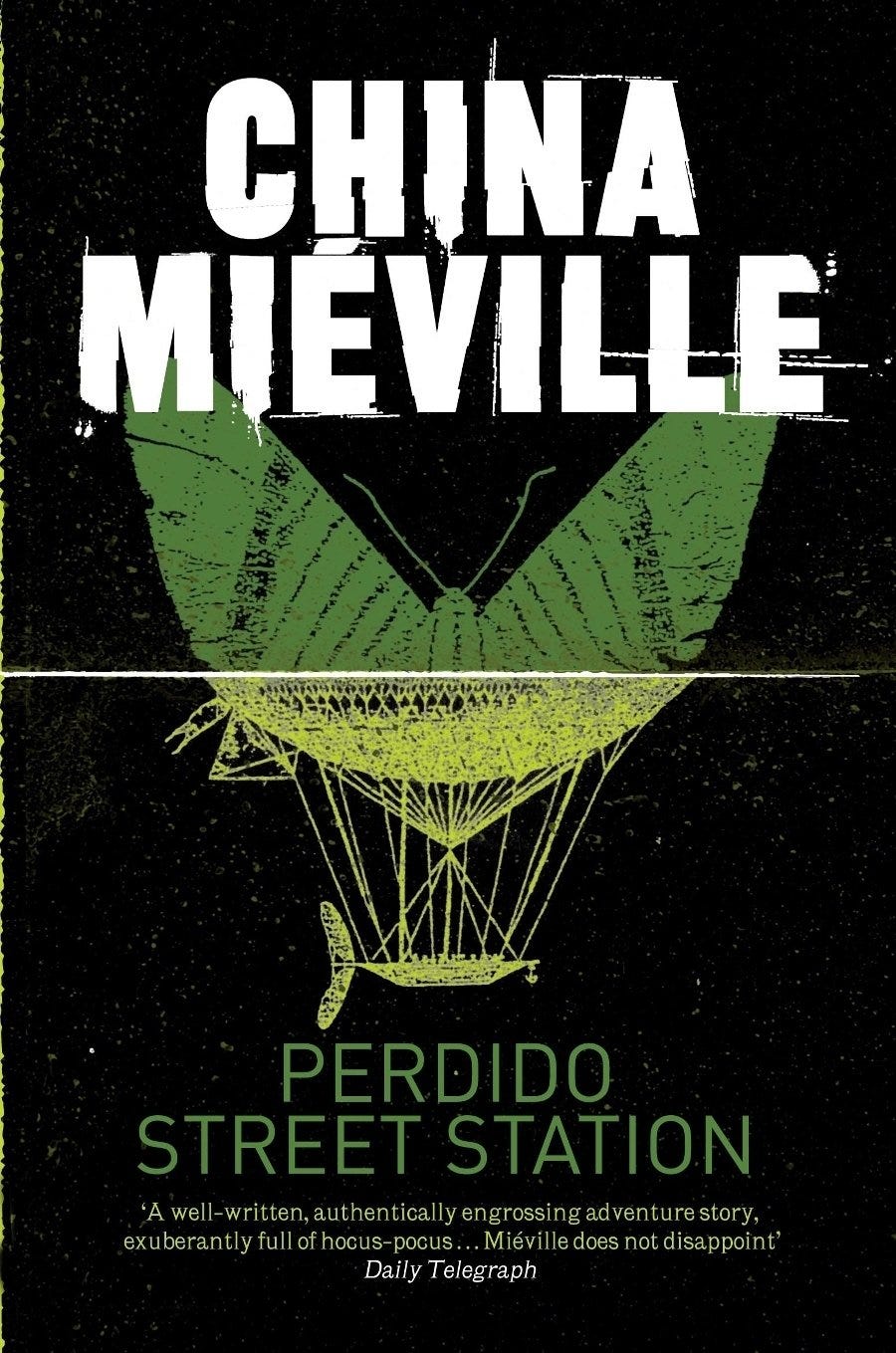
“Lin’s bulging mirrored eyes saw the city in a compound visual cacophony. A million tiny sections of the whole, each minuscule hexagon segment ablaze with sharp colour and even sharper lines, super-sensitive to differentials of light, weak on details unless she focused hard enough to hurt slightly. Within each segment, the dead scales of decaying walls were invisible to her, architecture reduced to elemental slabs of colour. But a precise story was told. Each visual fragment, each part, each shape, each shade of colour, differed from its surroundings in infinitesimal ways that told her about the state of the whole structure. And she could taste chymicals in the air, could tell how many of which race lived in which building: she could feel vibrations of air and sound with precision enough to converse in a crowded room or feel a train pass overhead.”
This alone should be reason enough, but moving on.
Perdido Street Station takes the cake in terms of sheer originality and worldbuilding goodness. It’s incredibly weird, from one of the fathers of the New Weird movement, blending together fantasy races and magic with steampunk (and even cyberpunk elements, BUT ANALOG??? YEAH) and an actual punk sensibility.
This humongous brick of a book throws you into a filthy, cosmopolitan, industrial metropolis with all the tension and politics and drugs this entails, sprawling under the shadows of the titanic ribs of some inconceivably large dead thing. New Crobuzon is a city of soot, steam, severed left ears for some reason, poetry, powder, and powerful magics. The author’s undisguised disdain for the murder hobo practices so common in other forms of fantasy escape feels oddly subversive in this setting. I could go on, but that would rob you of the experience of being utterly blown away by the unending waves of

Managing to make this mess feel organic and tell a cohesive, complex, tale within it is a towering achievement for which Miéville earned a good chunk of my hours (I went on to read the two sequels, then the unrelated masterpiece Embassytown). The many perspectives make it even more mindbending, like that glimpse of New Crobuzon from the insectoid eyes of a she-khepri shows.
The emotional palette the book covers is very broad, the cast is diverse and well-written, but for all its hectic wonder, Perdido Street Station does eventually fall into the downer side pretty heavily. Thomas Frank, of CGI fame and of whom I’m an admirer, finished the book not liking it because of the unrelenting bleakness. Odd note to end what is supposed to be an incentive to escape from current worldwide horribleness, but the previous point on catharsis still applies. And really, the world more than makes up for it. I feel dangerously close to rereading it as I type.
